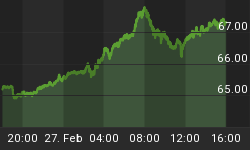U.S. airline stocks just can’t catch a break, taking a hit on Monday as the European Union recommended its member states reinstate COVID-related travel restrictions on the Americans.
The EU’s recommendation hurt all airline carriers, following a good run during the summer season, with more flights resumed and sales skyrocketing.
Major carriers American Airlines, Delta Air and United all saw their stocks fall around 3.5%. Even domestic oriented Spirit Airline, JetBlue Airways and Southwest airlines stocks fell around 3%. American Airlines stock fell to $19.51, Delta slid to $39.91, while United fell to $45.60, regaining 1.3% on Tuesday.
The EU’s recommendations are based on a rapid uptick in Covid cases in some US states in the last couple of months, but the decision is likely to only affect those travelers who are unvaccinated.
According to data from the Centers for Disease Control and Prevention (CDC), only 52.1% of the population is fully vaccinated.
The EU lifted travel restrictions for American visitors in late June, in time for the busy summer travel season.
COVID-19's Delta variant is currently surging through Florida, Texas and Louisiana, most notably. The southern states have the lowest vaccination rates. As a result, hospitals are reeling, as ICU beds fill up and oxygen supply is scarce.
The daily average for hospital admissions has risen past 150,000 for the first time since last winter. Florida has more than 16,000 Covid-19 patients in hospital--the most of any state--followed by Texas and California. Death rates have risen, too, reaching an average of more than 1,000 per day.
The EU’s new guidance to its member states is nonbinding.
The U.S. has yet to reopen its own borders to EU tourists, imposed in March last year.
In its newest guidance, except the United States, five other countries were removed from its “safe travel” list, Israel, Kosovo, Lebanon, Montenegro, the Republic of North Macedonia
As for U.S. airlines, they saw seat capacity expectations realized for the summer season, with approximately 90% of their 2019 system seat capacity.
Even higher ticket prices haven’t scared off flyers. According to the booking app Hopper, airfares were soaring all summer, up 12% since April while international flights up 8%.
The surge of summer travelers also helped airlines improve their financial results for the first quarter, seeing sales increase more than 300% on average. The last quarter also saw major airlines trim their net losses compared to the same time in 2020.
According to the U.S. Department of Transportation data, airlines reported after-tax net loss of $4.2 billion, down from the fourth-quarter loss of $7 billion. However, they also reported pre-tax operating loss of $12.7 billion, up from the fourth-quarter loss of $9.7 billion.
The recovery might end up being short-lived, if the pandemic’s resurgence continues and they get hit with a restrictive fall season, especially if business travel declines.
Nearly all U.S.-based carriers, both international and domestic-focused, have trimmed their fall schedules, compared with expectations a few months ago.
According to a 2020 report from Moody’s Investor Services, the airline industry will continue to suffer well into 2023 because of the current coronavirus pandemic. And that is the best-case scenario.
In the worst-case prediction, the industry will not rebound to last year’s levels until 2024 or 2025.
















